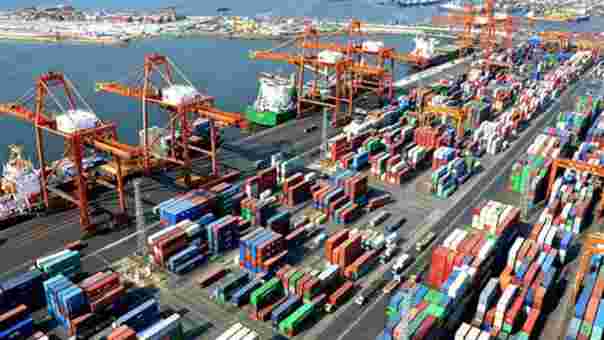In Pakistan’s trade and customs framework, the Electronic Import Form (EIF) plays a central role for all importers of goods. Introduced through the State Bank of Pakistan (SBP) regulations and integrated into the WeBOC (Web-Based One Customs) system, EIF ensures that every import transaction is properly declared, monitored, and aligned with foreign exchange regulations.
But what exactly is EIF, and why does it matter so much for importers? Let’s break it down in a practical, interactive way.
Q1: What is EIF?
EIF stands for Electronic Import Form. It is a mandatory electronic declaration that all importers must file before clearing goods through Pakistan Customs.
The purpose of EIF is simple:
• To ensure that payments for imports are routed through Authorized Dealers (banks licensed by SBP).
• To document and track foreign exchange transactions against imports.
• To safeguard against money laundering and trade-based financial crimes.
In short, EIF ensures every import is legally backed by a transparent payment trail.
Q2: When do Importers Need EIF?
Every time an importer files a Goods Declaration (GD) in WeBOC, they must first attach an EIF. The EIF links the payment method to the customs clearance, whether it is:
• Advance payment made to a supplier abroad.
• Letter of Credit (LC) opened with a bank.
• Collection basis imports where documents are sent by a foreign bank.
• Open Account transactions, where the supplier directly sends goods/documents without an LC.
👉 Without an approved EIF, customs clearance cannot move forward.
Q3: How Do Importers Get EIF Approved?
The process is straightforward but requires attention to detail:
1. Importer submits EIF request electronically in WeBOC.
2. Authorized Dealer (bank) reviews it and approves/rejects based on payment mode and documents.
3. Once approved, the importer can attach the EIF with the GD to clear goods.
For Open Account imports, EIF must be approved before clearance of goods, often requiring photocopies of shipping documents.
Q4: What Role Do Authorized Dealers Play?
Authorized Dealers are the backbone of EIF approvals. They must:
• Conduct KYC/CDD (Know Your Customer/Customer Due Diligence) of importers.
• Assign risk categories to clients to prevent trade-based money laundering.
• Maintain confidentiality and security of WeBOC User IDs.
• Approve or reject EIF requests based on compliance with SBP’s rules.
In essence, while importers initiate EIF, banks ensure its integrity.
Q5: Can EIF be Amended, Cancelled, or Expire?
Yes. The EIF process is dynamic:
• Importers can amend requests before approval.
• Banks can amend approved EIFs (value, quantity, validity, etc.) with supporting documents.
• Importers or banks may cancel EIF before a Bank Debit Advice (BDA) is filed.
• Unused EIFs automatically expire within 15 days unless extended by banks.
This flexibility ensures that trade disruptions or errors can be managed efficiently.
Q6: Why is EIF Crucial for Importers?
EIF is not just a formality. It directly impacts how importers operate:
• Compliance: Importers avoid penalties and ensure adherence to SBP and Customs rules.
• Transparency: Ensures payments are legally documented, protecting businesses during audits.
• Security: Reduces the risk of fraud, under-invoicing, and misuse of foreign exchange.
• Efficiency: Digital integration with WeBOC speeds up customs clearance.
For serious importers, EIF is as important as the Goods Declaration itself.
Key Takeaways for Importers
• Always initiate EIF before filing GD.
• Work closely with your Authorized Dealer bank to avoid delays.
• Maintain updated KYC information with banks.
• Monitor EIF expiry dates and request extensions when necessary.
• Keep complete records of EIFs for compliance checks.
Final Word
The Electronic Import Form (EIF) may seem like just another regulatory step, but for importers, it is a gateway to smooth, transparent, and legally compliant trade. By ensuring that payments match import declarations, EIF protects both businesses and the economy from irregularities.
In today’s global trade environment, where compliance and financial integrity are non-negotiable, EIF is not just a requirement—it is a safeguard for every importer operating in Pakistan.
(Disclaimer: This article is provided for general informational purposes only and does not constitute legal, financial, or regulatory advice. Importers are advised to consult the official circulars, notifications, and user manuals issued by the State Bank of Pakistan (SBP) and Pakistan Customs for complete and updated requirements regarding the Electronic Import Form (EIF). For case-specific guidance, please seek advice from your Authorized Dealer or professional consultant.)
